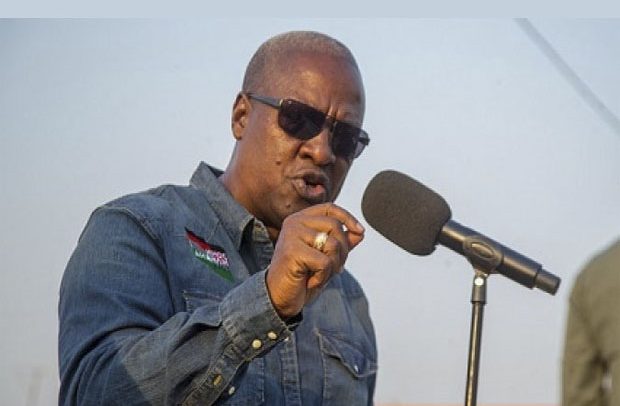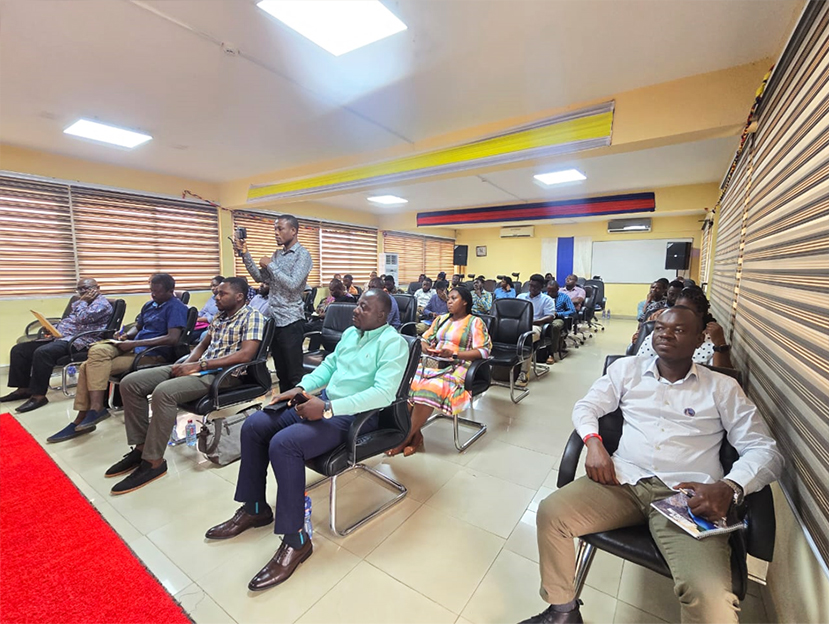
By Maxwell Danso BOAKYE
When Ghana struck oil in 2007 and began commercial production in 2010, optimism soared. Many believed “black gold” would supercharge the economy, joining cocoa and gold as the new pillars of prosperity. The narrative was simple: oil would transform Ghana’s development path.
Fifteen years later, reality tells a different story. Despite billions of dollars in petroleum receipts, oil has not been the growth catalyst we imagined.
My recent study, which analyzed quarterly data from 2010 to 2023 using the Autoregressive Distributed Lag (ARDL) econometric approach, reveals a striking truth: non-oil revenue, not oil, is the real driver of Ghana’s economic growth.
The Power of Non-Oil Revenue
The evidence is clear. A 1% increase in non-oil revenue boosts GDP by 1.22% in the short term and by 1.93% in the long run. This is not just a statistical detail; it’s an economic reality with profound implications.
Non-oil sectors, such as agriculture, manufacturing, mining, services, and domestic taxation, continue to be Ghana’s growth engine. They provide the jobs, incomes, and resilience that oil has failed to deliver. Unlike oil, which is highly vulnerable to global price swings and production fluctuations, non-oil revenue offers stability.
Take agriculture, for instance. Despite policy neglect in recent years, it remains the largest employer and a key source of food security. Similarly, services from banking to ICT are expanding rapidly and shaping the new face of Ghana’s urban economy. Manufacturing, though lagging, has untapped potential if backed by industrial policy and value-chain integration.
In short, Ghana’s sustainable growth story is being written outside the oil rigs. The non-oil economy is where resilience lies.
The Oil Paradox
One might expect oil, with its billions in potential revenue, to deliver transformative growth. Yet, the data shows otherwise. Oil revenue’s contribution to GDP growth is statistically insignificant, and in some cases, even negative.
This paradox reflects Ghana’s struggle to convert petroleum wealth into lasting development, a challenge widely described as the “resource curse.” Countries blessed with natural resources often experience weak institutions, poor governance, and volatility-driven fiscal crises. Ghana’s experience echoes this cautionary tale.
Too often, oil receipts have been used for consumption rather than investment. Political cycles encourage short-term spending rather than long-term strategy. Meanwhile, limited transparency in the management of oil funds undermines public trust. Instead of being a blessing, oil risks becoming a missed opportunity or worse, a liability.
If Ghana is to benefit from oil, strong governance and disciplined policy are non-negotiable. Otherwise, petroleum wealth will remain a mirage.
Debt and Inflation – A Double-Edged Sword
The study also highlights two other macroeconomic forces shaping growth: debt and inflation.
On the positive side, debt, when channeled into productive investments, can stimulate long-term growth. Roads, power infrastructure, irrigation, and digital connectivity funded through borrowing can unlock private sector productivity. Ghana’s challenge, however, is ensuring that borrowed funds are directed into such high-return projects rather than recurrent expenditures.
Inflation, by contrast, remains a persistent drag. Rising prices erode household purchasing power, destabilize business planning, and undermine investor confidence. For a country where inflation frequently hits double digits, the costs are severe. Price instability has the potential to wipe out the very growth gains that non-oil sectors deliver.
Managing debt wisely and taming inflation are therefore critical for Ghana’s economic strategy. Without stability, growth cannot be sustained.
Policy Recommendations: Building a Resilient Growth Model
To secure long-term prosperity, Ghana must rethink its growth priorities. The lessons from the data point to four clear policy directions:
Strengthen non-oil revenue mobilisation.
Expanding the tax base, embracing digitalised collection systems, and incentivising the formalisation of the informal sector are essential. Ghana’s informal economy remains vast, and bringing more businesses into the tax net can provide stable revenue for development. A fair and efficient tax system also builds trust between citizens and the state.
Improve oil revenue governance.
Transparency and accountability must define how petroleum receipts are managed. A dedicated sovereign wealth fund with clear investment rules can help shield the economy from price volatility. Equally, linking oil spending to productive investments in infrastructure, education, and innovation ensures that oil wealth builds lasting assets, not fleeting consumption.
Maintain debt sustainability.
Borrowing is not inherently bad, but reckless borrowing is dangerous. Ghana must direct loans towards projects with high economic and social returns. Conducting regular debt sustainability analyses and strengthening fiscal discipline will help avoid the debt crises that have repeatedly derailed growth.
Prioritise price stability.
Inflation control is not just a central bank responsibility; it requires coordinated fiscal and structural policies. Curbing wasteful spending, stabilising the cedi, and boosting domestic production of food and essentials can all help keep prices in check. Protecting purchasing power is key to safeguarding inclusive growth.
The Bigger Picture: Beyond Oil
The overarching lesson is simple: Ghana’s future prosperity will not be determined by how much oil we pump, but by how effectively we nurture our non-oil economy.
Global trends reinforce this urgency. As the world transitions towards renewable energy and carbon-neutral growth, dependence on oil revenues will become increasingly risky. Countries that fail to diversify will find themselves left behind.
For Ghana, the smartest path is clear: look beyond oil, diversify boldly, and invest in human capital, innovation, agriculture, and manufacturing. These sectors have proven their resilience and potential. They create jobs, stabilise incomes, and foster inclusive growth in ways oil never has.
The clock is ticking. The energy transition is accelerating, and Ghana cannot afford to anchor its hopes on petroleum. Our long-term growth model must be built on the dynamism of our non-oil sectors.
Conclusion
Oil was once hailed as Ghana’s ticket to prosperity. Fifteen years on, that promise remains largely unfulfilled. Evidence shows that non-oil revenue is the true engine of growth, while oil revenue has failed to deliver.
Debt can support growth if wisely managed, but inflation continues to undermine stability. The policy message is clear: Ghana must strengthen non-oil revenue mobilisation, improve oil governance, maintain debt sustainability, and prioritise price stability.
Ultimately, Ghana’s prosperity will be secured not by chasing oil windfalls but by investing in the real economy: agriculture, manufacturing, services, and human capital. The future lies beyond oil, and the sooner we embrace it, the brighter our growth story will be.
The writer is a Chartered Accountant and Chartered Global Investment Analyst investment,
The post Beyond oil: The growth engine lies elsewhere appeared first on The Business & Financial Times.
Read Full Story
















Facebook
Twitter
Pinterest
Instagram
Google+
YouTube
LinkedIn
RSS